Musician: WILLY PORTER
Video: “Angry Words”
WILLY PORTER FEATURED AT BLUE ROCK’S COOL NIGHTS 21 THIS THURSDAY, OCTOBER 28
Willy Porter will be featured at Blue Rock aLive! Cool Nights 21 livestreaming concert series—this Thursday, October 28. His music spans over two decades, 11 albums and multiple continents with a journey defined by an inquisitive love for humanity and the language that describes what we all hold to be true. Porter’s songs weave a universal perspective about the questions, struggles and triumphs of human existence. His live shows are guitar-driven grit, soul, silence and muscle—at times electrifying, dynamic and unique in the way that Porter’s voice blends and fuses with his fret work.
In 1990, he released his first full-length independent album, The Trees Have Soul, and the touring life has flowed steadily ever since. He has toured in support of artists like Tori Amos, Paul Simon, Jethro Tull, Sting and Jeff Beck.
Porter’s breakthrough album, Dog Eared Dream, was released in 1994, and the song “Angry Words” quickly became a staple on AAA radio. In addition to making a life in music, Porter finds ways to make an impact on local and international levels. He is an active supporter of Advocates of Ozaukee, a shelter and treatment facility for victims of domestic violence and abuse in Mequon, Wisconsin. His annual benefit concerts have raised more than $100,000 for this organization. He is also an Ambassador for Guitars for Vets, a Milwaukee-based international organization improving the lives of veterans by providing them with guitars and music lessons.
Willy Porter has mastered the intricate balance of using the full tonal palette of the guitar to enhance his carefully crafted lyrics. His songs ring with the power of truth that he hopes will tap into our human kindness, asking us to question and change our path toward the available light of a new day.

In “Change Your Mind” he asks “Can you forgive the heart of a stranger letting you down out of fear”—wishing us “not to live in fear—and let the music to change our mind.” He elicits the names of some amazing truth leaders who let us know that “the biggest fight of your life will be you versus you.”
We talked with Willy Porter about his journey over the past three decades of writing songs and touring, how his approach to songwriting has evolved with time, how the journey of creating has become the destination—giving himself permission to just have fun and how he hopes we can all work together to help make a difference.
Check out his livestream this Thursday, October 28, at Blue Rock Texas—where innovation, quality and creativity are evidenced in concerts produced with broadcast quality audio-video from their renowned Texas room—streamed straight to you. What’s unique about the Season Pass ($105) is that you can have a seat in the house by sending in your headshot. They will place your headshot on a seat, so you will literally be sitting in the room. Go to: https://bluerocktexas.com/events
WILLY PORTER Interview
with M Music & Musicians magazine publisher, Merlin David
Tell us the story behind one of the songs you will play at Blue Rock’s Cool Nights 21 (for your October 28 performance).
“Change Your Mind” is a new song that weaves through some of the beliefs and mythologies we humans cling to as we fall prey to algorithm-inspired tribalism. It’s a lot of fun to play on the guitar and seems to chug along in agreement with itself fairly well.
Which song are you especially glad made it onto your most recent album mnemonic?
“Bears Ears & the Great Law” is the most fulfilling piece on this record. It was inspired by the environmental wonder of the Bears Ears National Monument in Utah established by President Obama in 2016, as well as the Great Law of Peace put forward by the Iroquois Confederacy. I was inspired to work on it when the next president reduced the size of Bears Ears dramatically after also offending the Native American Code Talkers during a White House visit in their honor. The song took a few months to finish, but it really is the cornerstone of that recording project.
Willy Porter has mastered the intricate balance of using the full tonal palette of the guitar to enhance his carefully crafted lyrics. His songs ring with the power of truth that he hopes will tap into our human kindness, asking us to question and change our path toward the available light of a new day.
What did you learn about yourself after recording this album?
I came away from the mnemonic project realizing that song forms don’t really matter to me as much as they used to. Singer-songwriters, me included, can fall prey to the rules they hear applied in others’ work—and feel compelled to write and arrange under those linear constraints. I do love a 3-minute song that sets the world alight. But I am equally happy writing a 9-minute piece—if it holds together as a composition and feels more like a ride. This has been liberating. In this way, the journey of creating for me has become the destination. I am working on a new studio record now for release in 2022.
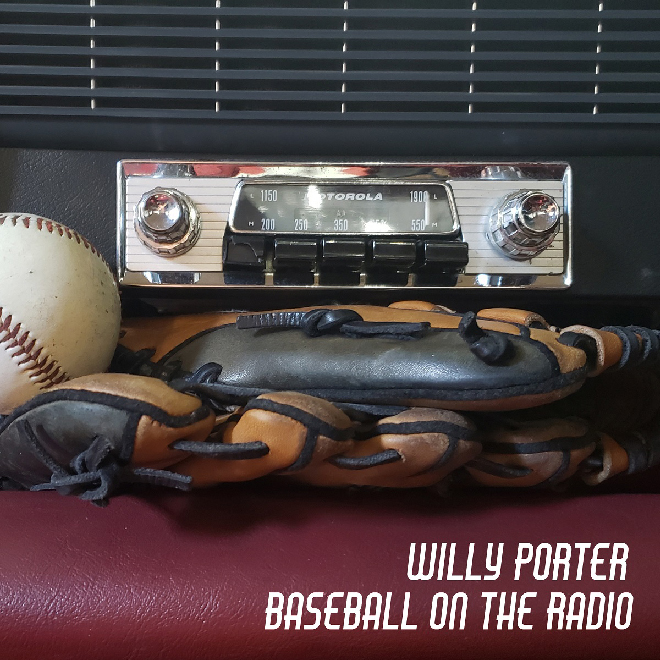
Who originally inspired you to write songs?
I helped run the coffeehouse and book bands at my college in the 80s. Through that experience, I came into contact with some great writers—Bill Miller, L.J. Booth and Johnsmith. Through the years, they all became friends and their work continues to inspire me today.
What songwriting tip would you like to offer?
Suspend judgement on yourself. You are trying to create a safe space within which this piece of art can live. When you’re writing, remember that you’re writing for you first. Don’t overjudge it. Let it sit for a couple of days—let it live and breathe for a little while—and then come back to it.
How did the idea for “Angry Words” come to you?
I was happy for the way that song was received. If it wasn’t for that experience, I never would have believed. The song started as a letter I was writing to someone—our relationship had failed. As I wrote, the couplets started to feel like stanzas. From there, it just evolved into the song. The guitar part was turning in my mind. I was working with cut capos—finding different voicings on the guitar. That led to this groove that I had in this fleabag apartment in Milwaukee’s eastside.
Do you ever feel restricted by a song that becomes popular?
It’s nothing short of a blessing when a song resonates with your audience. I’m always shocked when an artist doesn’t want to play an older song. While Joe Walsh was introducing “Rocky Mountain Way” he said, “If someone would have told me I’d have to play this song for the rest of my life, I would have written a better one.” (Laughs)
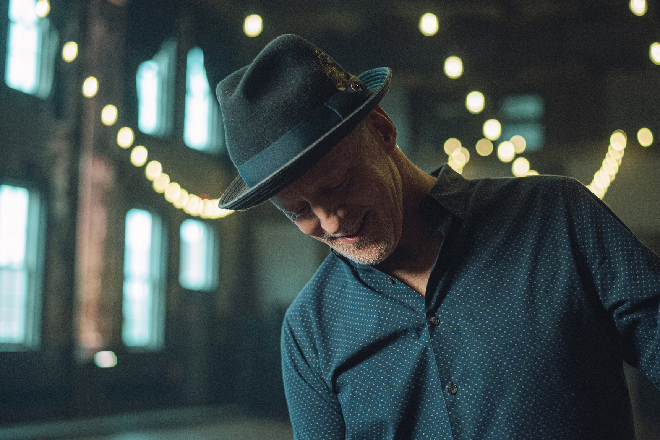
What instruments/equipment can you not live without?
My first Gordon Bischoff six-string is one I got from him back in the 80s. It has a warm, dark rosewood tone. It holds a groove. It’s not the loudest voice in the room, but it’s the voice you want to hear. So I’m always drawn back to it. I don’t tour with those guitars anymore, as the airlines have tried to destroy them on several occasions. Currently, they seem to be the haunted ones that have tunes rattling around inside. That’s the guitar I would run into the house to grab, if there was a fire. I also write a lot on my two Jason Kostal Guitars. They brought me “Bears Ears” and “The Ravine.” The voicings and intonation allow me to do things that I can’t do on other instruments. On the road I rely on my Kevin Muiderman six-string. He’s in North Dakota and he’s building these incredible sounding guitars. They are structurally robust and can be put through many different tunings in a show—while remaining stable. He’s making guitars for Leo Kottke. I have several of his instruments and they are amazing—they’re so balanced that you can play on them in any register. Those guitars also have tunes in them. They’re all different. It’s wonderful to have a little collection of guitars.
Any accessories?
I’ve been using a Neumann KMS 105 vocal mic for 20 years. I love it. For the guitar, I’ve discovered Grace Design—FELiX preamp and ALiX—both are liberating and excellent pieces. That works well with Fishman electronics in the guitars. I use a ton of Kyser capos that are either modified or third-hand that they have. I certainly wouldn’t have written so many songs without those capos. Back in the day, Harvey Reid and Tom Pirozzoli were modifying the regular Kyser to make an Esus capo. We were cutting them off and modifying them—and we had fun doing that. I probably still have some of those old capos. Then Kyser started producing them—which is nice. I also use Shubb capos.
Which Top 5 Musicians inspired you to become a musician?
Leo Kottke, Joni Mitchell, Bob Dylan, Michael Hedges and Marvin Gaye.
What are your Top 5 favorite albums of all time?
The Dark Side of the Moon (1973) — Pink Floyd
Animals (1977) — Pink Floyd
OK Computer (1997) — Radiohead
Wired (1976) — Jeff Beck
Seven Heaven (1987) — Glen Velez
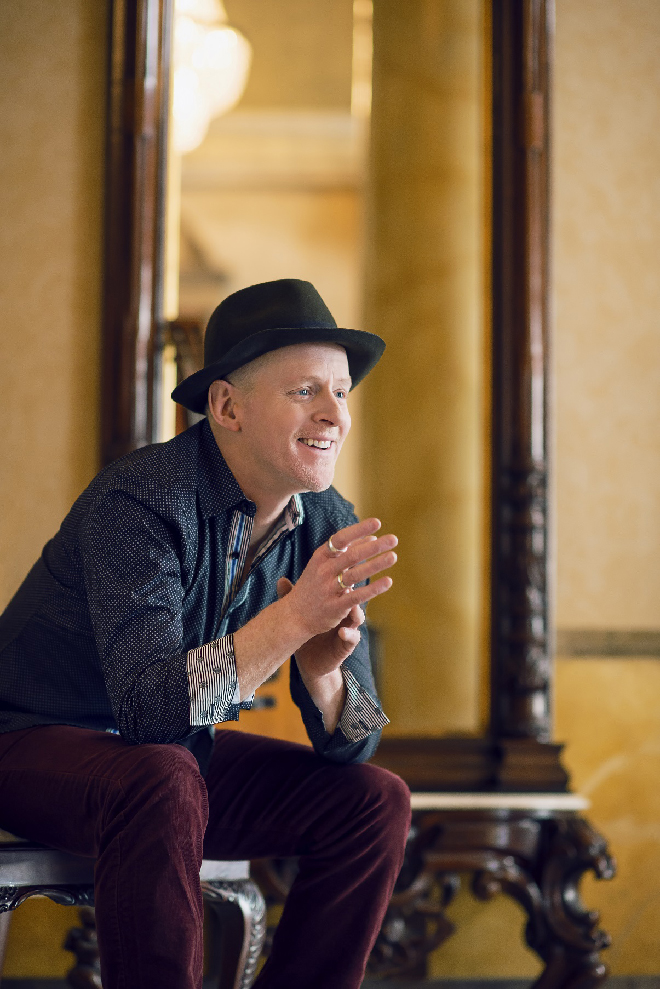
Tell us a “pinch me” moment when you thought “Wow, this is really happening to me!”
Hanging out with Jeff Beck backstage, while he played through a little vintage Fender Pro Junior amp and talked about getting a sound out of that amp—that was absolutely surreal for me. Also singing ‘Gas Her Up’ on stage with Sting during his Brand New Day tour—that was also a very bright moment.
What is the best advice someone has given to you?
When I failed the sight-reading test, my classical guitar teacher said “You know, you can be a good classical guitarist, if you wanted to. What music do you listen to at home?” I said, “Joe Walsh and the James Gang—rock ’n’ roll.” He leaned in and said, “I’ll tell you a secret. Play the music you love. It’ll be easier for you and it’ll carry you much further.”
Best advice you’d like to give upcoming musicians?
After each show, first write down three things you got right—then review what you need to improve. Never put business before music; it’s the music business, in that order, for a reason. Always strive to play with musicians who are better than you (that has been relatively easy for me), who you respect as humans and who are in music for the music.
Why do you think it’s important for musicians to be involved with things more than music—like your involvement in Advocates of Ozaukee and being an Ambassador for Guitars for Vets?
I have found that helping organizations and people I believe in—adds fuel to the ‘why’ of my own existence. It’s easier to face the valleys of this life knowing that you may have made someone else’s journey a little bit easier.
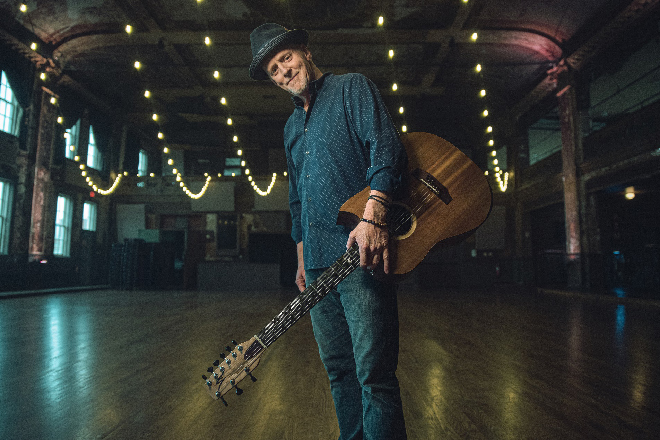
Why is playing at Blue Rock Texas so special?
Billy Crockett is a great artist himself. He understands what it means to travel, stay integrated with your music and embrace a community at that moment that you’re traveling through. All that knowledge and wisdom from his career—has filtered into Blue Rock’s promotions and production. They make their artists feel grounded. The facilities they’ve created are world class, but their patience and the way they are as people—is integrated into the shows they produce.
Is there a song you’ve written that you are glad resonated with people?
One More September” from my album Available Light is a statement about reclaiming what September 11th could be. In all this loss, in all this pain—there is always hope. We can retain that hope. We can reserve the right to hold it. People responded to that song in a very positive way—and it was gratifying.
How do you remain hopeful in this strange and unique socio-political time?
I work on my faith and try to be as present in the moment as I can be. I also talk to the friends I don’t agree with and try to focus on the vast amount we hold in common in our lives—not the differences in our opinions.
Where can new fans get more info and stay updated?
www.WillyPorter.com
Instagram: @willyportermusic
Twitter: @WillyPorter
Facebook: @willyportermusic
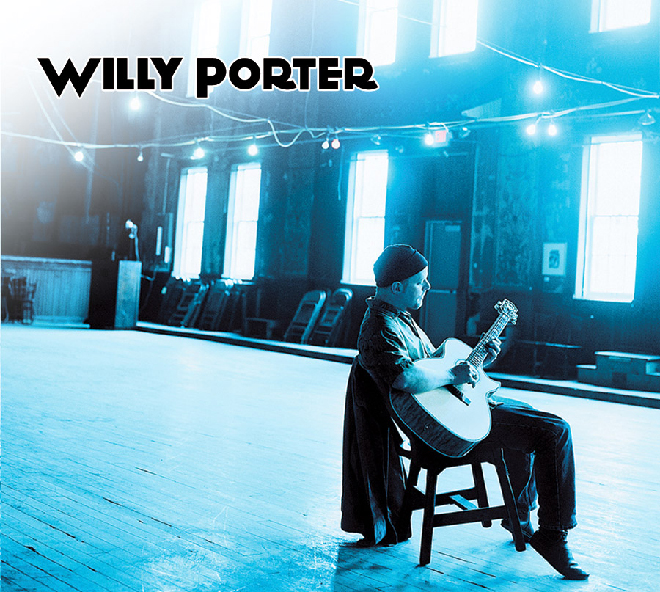



comment closed